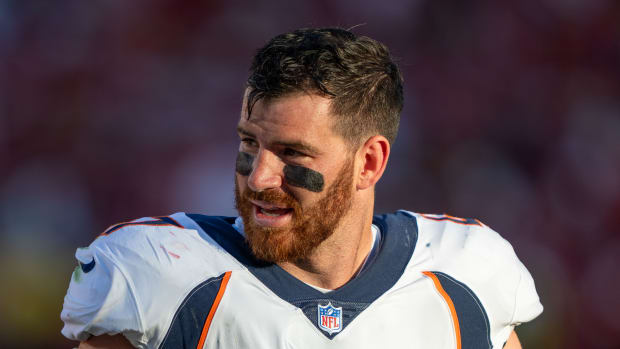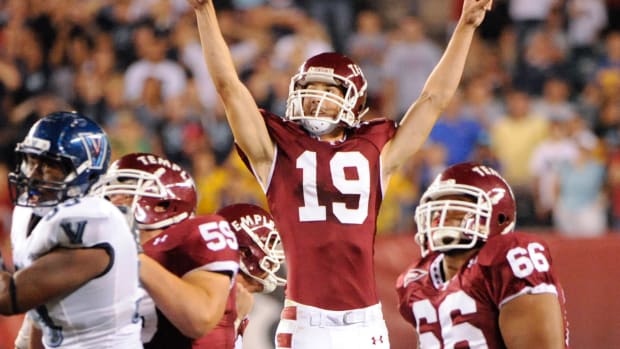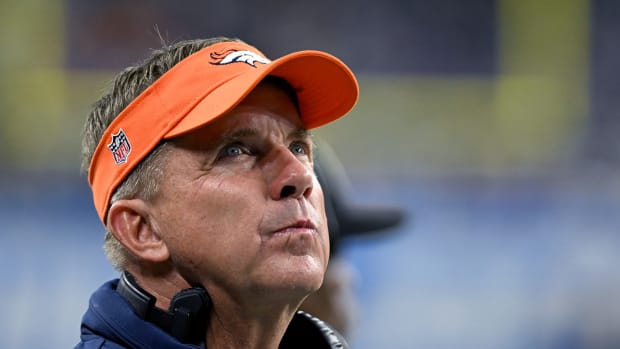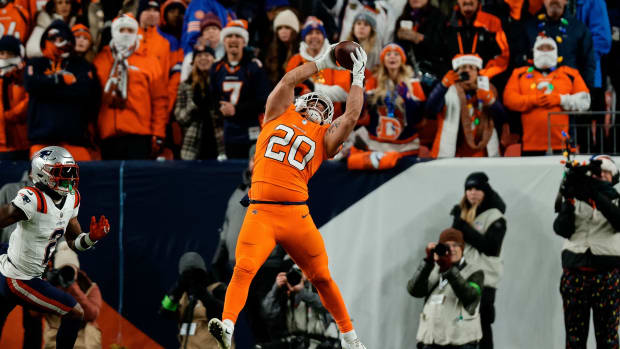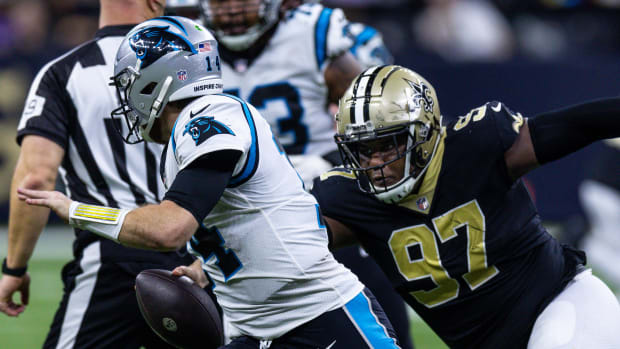Examining Whether Fan Waivers are a Viable Solution to Attending Broncos Games in 2020
There will be a 2020 NFL regular season, don't worry. But will it be the NFL fans know and love? Other professional sports have restarted without fans at the events but the NFL is unique.
The NFL needs fans in the stadium. Even when fans are watching the Broncos on television, screaming “D-FENCE” along with those in attendance at Empower Field at Mile High, that shared experience is an essential part of the game, for both fans and players.
One proposed solution to getting fans into the stadium is to have those fans sign a waiver. Based on the data Mile High Huddle has gleaned from its polling on social media, it would seem about three-quarters of fans would sign a waiver if it meant they could attend a Broncos game.
Broncos fans really want to have the Stadium opened. But a closer analysis suggests that there are many potential problems with using fan waivers as the simple and easy solution to opening Mile High.
Understand, this is not medical or legal advice. This article assumes that the formal NFL structure (the league, team owners, NFLPA, and television broadcasters) and appropriate government authorities will be able to agree on conditions for returning to play and will not consider all the deals they will probably make. Regardless, each of these groups has a strong incentive to reach an agreement.
Even the cities and states that host NFL games want to reach an arrangement because they need the economic benefits and tax revenues associated with having a stadium full of fans.
We all sign waivers on a regular basis, including when we go to the doctor, when we buy or download new software, when our children go on school fieldtrips, the list goes on. But very few people read or understand those waivers and even fewer are able to negotiate any changes to those form waivers.
People sign them because it is the only way to attend the event or obtain the service. Which brings us to a review of the concept of contracts of adhesion. (Waivers, consents and agreements are treated here as being the same for purposes of this post.)
A contract of adhesion is generally defined as a contract between one party — who has a significant amount of power to dictate the terms of that contract, has detailed knowledge of the risks involved in the underlying activity and has competent legal counsel to draft the contract — and another party — who has little or no ability to change the terms of that contract, may not understand all the risks involved and has limited legal representation.
A U.S. court may enforce portions of a contract of adhesion, but will probably not enforce provisions that the court determines are unconscionable.
As discussed more thoroughly in a December 5, 2018 National Law Journal posting by Nora Valenza-Frost, with all the procedural complications this article ignores, U.S. federal courts, applying Colorado law, have held that contracts between two European au pairs and a U.S. employment agency that connected American families with European au pairs “were contracts of adhesion and procedurally unconscionable because the au pairs were relatively young at the time they signed the contracts, were foreigners, spoke English as a second language, and had no experience with contracts or contract law.
One court found that the contracts were procedurally unconscionable to a moderate degree as contracts of adhesion. As to substantive unconscionability, the Court analyzed three clauses and held: (1) allowing the agency to select unilaterally the arbitration provider has a high degree of substantive unconscionability; (2) a California forum selection clause was not unconscionable; and (3) bilateral fee shifting was not unconscionable.
Because the au pair agreements have moderate procedural unconscionability and significant substantive unconscionability due to the arbitration provider selection clause, the au pair agree is unconscionable and unenforceable as written.” In other words, the provisions were not enforceable.
Suppose you and thousands of other fans at a game a Mile High were exposed to COVID-19 as a result of the NFL’s failure to ask the employees of the contractor who operated the food concessions stands at Mile High whether they had a fever? Would you agree not to sue the NFL in a class action lawsuit together with those other fans?
Suing as a group may be the only way you have sufficient resources to challenge a sizable entity like the NFL in court. You may also have to agree that, instead of suing in court, you will use an arbitration panel. If you have visited NFL.com, you have agreed to similar restrictions which are included in the Terms of Service for that website.
Of course, those terms only apply to your use of the internet site, not attending a game. However, the NFL may include similar terms in any fan waiver you sign to attend a game at Mile High. It is unclear whether a court would find these terms to be unconscionable or to be reasonable given the circumstances.
The NFL’s goal in this process will be to limit their potential virus-related liability as much as possible, to get as close to the line between an enforceable contract and an unconscionable contract without going over. Perhaps the federal government will grant the NFL special protections, like they have done previously for certain anti-trust and tax issues.
In addition to these more abstract concerns, there are a few practical concerns regarding the use of waivers to accomplish our goal of bringing fans to the stadiums for the 2020 regular season:
- When should the waiver be signed? When the ticket is purchased or when the fan enters Mile High? Both provide complications.
- What kind of proof of age will be required?
- What if a fan is bringing their 15-year old child? What if the last names or addresses are different? Again, what type of proof?
- What if a fan brings their neighbor’s 8-year-old daughter? How will her parents be able to give consent for her?
These brief examples show some of the issues that make the fan waiver solution complex.
Mile High will be filled with fans in 2020 supporting the Broncos and still screaming “IN-COM-PLETE.” A waiver may become part of what is a series of actions that will make up an overall solution, but fan waivers won't be the end-all, be-all.
That overall solution will probably include temperature checks at the entrances, some social distancing requirements that reduce Mile High’s total fan capacity, a limit the number of fans at the Broncos store, the concession stands and the bathrooms, increased signage to explain the new rules, increased cleaning crews, increased number of health care professionals on site at Mile High to provide assistance, masks provided with the purchase of a ticket that will be distributed as fans enter the stadium, and hand sanitizers stations placed throughout Mile High.
Even though the survey shows that fans would be willing to sign a waiver to get into Empower Field at Mile High, the NFL might not risk having its wavier being thrown out later in a class-action lawsuit. A waiver will likely be a small party of any solution.
With dedication and planning, the wavier can become a component of a strong and fair package. But a waiver alone will not give the NFL or the Broncos the protection they would desire.
Follow Jon on Twitter @JonKayMHH and @MileHighHuddle.
